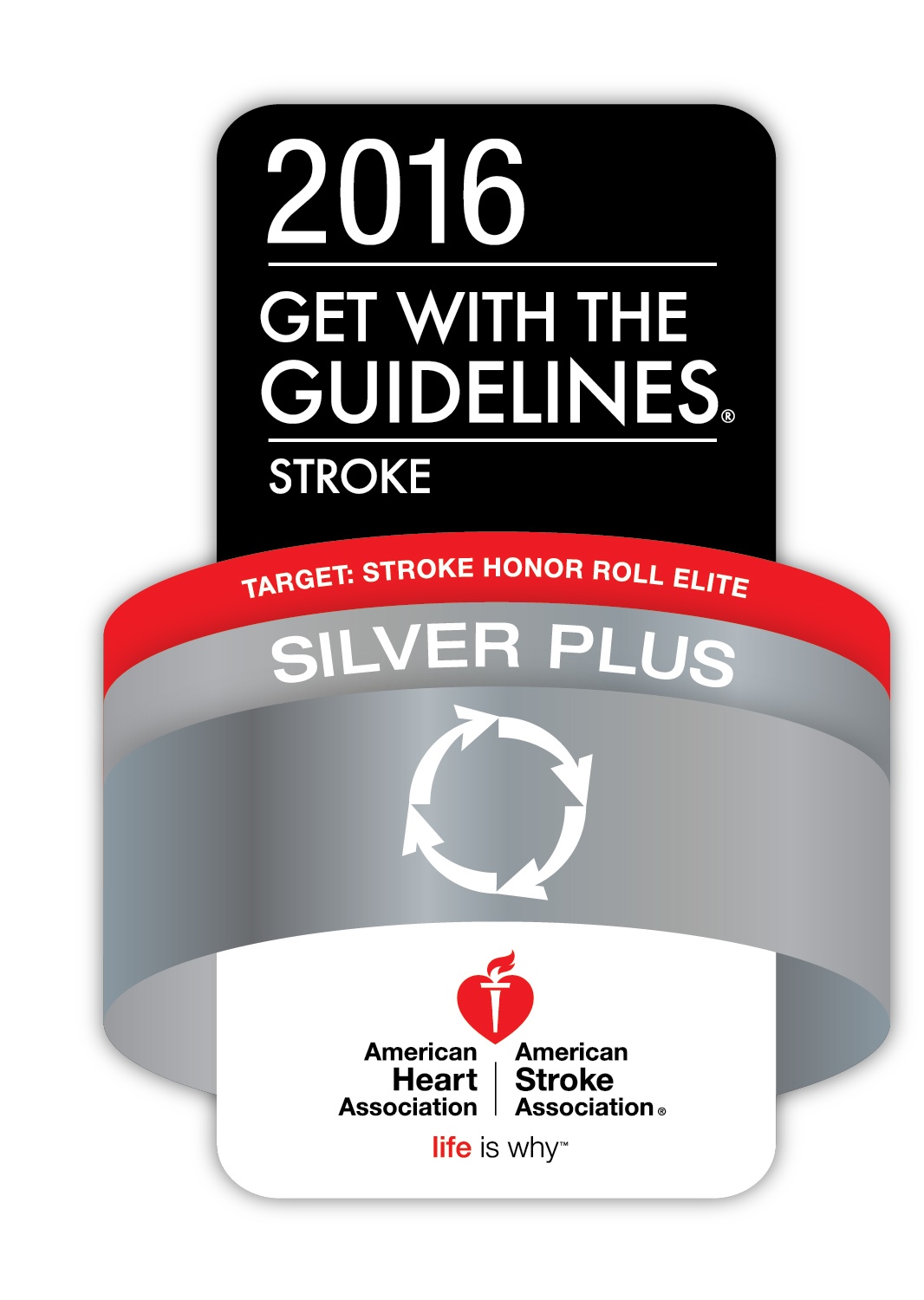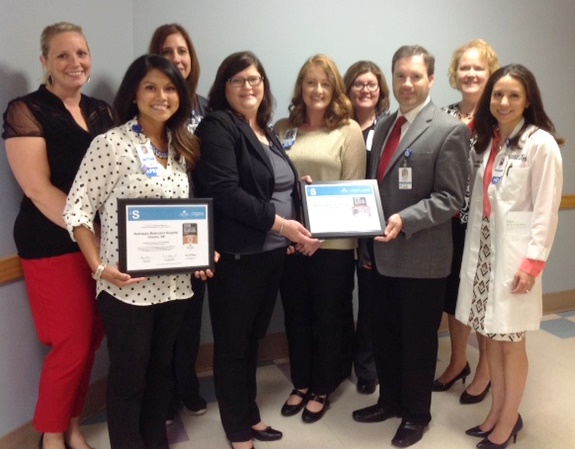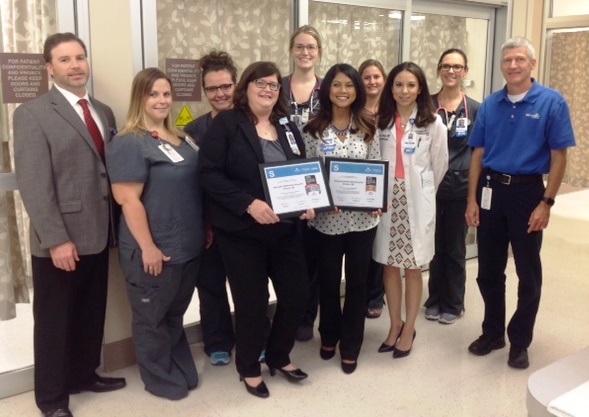




Methodist First in Omaha to Earn Target Stroke Honor Roll Elite Status
Published: June 1, 2016OMAHA ― Methodist Hospital, who treated nearly 400 stroke patients in 2015, was honored today by the American Heart Association/American Stroke Association as the first hospital in the City of Omaha to earn its Target Stroke Honor Roll Elite designation.
 In addition, Methodist was also awarded the Get With The Guidelines®-Stroke Silver Plus Quality Achievement Award. Beth Malina, American Heart Association/American Stroke Association Director of Quality and System Improvement NE, KS, and KC Metro, was on hand to present the awards.
In addition, Methodist was also awarded the Get With The Guidelines®-Stroke Silver Plus Quality Achievement Award. Beth Malina, American Heart Association/American Stroke Association Director of Quality and System Improvement NE, KS, and KC Metro, was on hand to present the awards.
“Earning the Target Stroke Honor Roll Elite award is a significant achievement for Methodist,” Malina said. “They have worked diligently to assure that every patient that comes here is getting consistent care. Patients that are arriving at Methodist are being quickly assessed and getting the stroke drug accordingly. We always say ‘time is brain’. The quicker the patients get the medication the better the outcome.”
To qualify for the Target: Stroke Honor Roll Elite, hospitals must meet quality measures developed to reduce the time between the patient’s arrival at the hospital and treatment with the clot-buster tissue plasminogen activator, or tPA, the only drug approved by the U.S. Food and Drug Administration to treat ischemic stroke. The drug therapy must be administered within 60 minutes in at least 75 percent of patients. If given intravenously in the first three hours after the start of stroke symptoms, tPA has been shown to significantly reduce the effects of stroke and lessen the chance of permanent disability.
“By achieving this award it indicates that we are diagnosing and treating patients who come to us in accordance with national standards,” said Pam Stout, stroke program coordinator at Methodist Hospital. “We have an acute stroke process in our Emergency Department with protocols that allow us to get imaging and labs quickly so the medical team can make decisions on the care our patients need. All these factors result in better outcomes for our patients.”
 To receive the Silver Plus Quality Achievement Award, hospitals must achieve 85 percent or higher adherence to all Get With The Guidelines-Stroke achievement indicators for at least 12 consecutive months and during the same period achieve 75 percent or higher compliance with five of eight Get With The Guidelines-Stroke Quality measures.
To receive the Silver Plus Quality Achievement Award, hospitals must achieve 85 percent or higher adherence to all Get With The Guidelines-Stroke achievement indicators for at least 12 consecutive months and during the same period achieve 75 percent or higher compliance with five of eight Get With The Guidelines-Stroke Quality measures.
These quality measures are designed to help hospital teams follow the most up-to-date, evidence-based guidelines with the goal of speeding recovery and reducing death and disability for stroke patients.
“A stroke patient loses 1.9 million neurons each minute stroke treatment is delayed,” Stout said. “Today’s recognition further demonstrates our commitment to delivering advanced stroke treatments to patients quickly and safely. Methodist continues to strive for excellence in the acute treatment of stroke patients. The recognition from the American Heart Association/American Stroke Association’s Get With The Guidelines-Stroke further reinforces our team’s hard work.”
 Methodist has also met specific scientific guidelines as a Primary Stroke Center, being re-certified in March, As a Primary Stroke Center, Methodist has a comprehensive system for rapid diagnosis and treatment of stroke patients admitted to the emergency department.
Methodist has also met specific scientific guidelines as a Primary Stroke Center, being re-certified in March, As a Primary Stroke Center, Methodist has a comprehensive system for rapid diagnosis and treatment of stroke patients admitted to the emergency department.
“The American Heart Association and American Stroke Association recognizes Methodist Hospital for its commitment to stroke care,” said Paul Heidenreich, M.D., M.S., national chairman of the Get With The Guidelines Steering Committee and Professor of Medicine at Stanford University. “Research has shown there are benefits to patients who are treated at hospitals that have adopted the Get With The Guidelines program.”
Developed with the goal to save lives and improve recovery time, Get With The Guidelines®-S has impacted more than 3 million patients since 2003.
According to the American Heart Association/American Stroke Association, stroke is the No. 5 cause of death and a leading cause of adult disability in the United States. On average, someone in the U.S. suffers a stroke every 40 seconds, someone dies of a stroke every four minutes, and nearly 800,000 people suffer a new or recurrent stroke each year.

